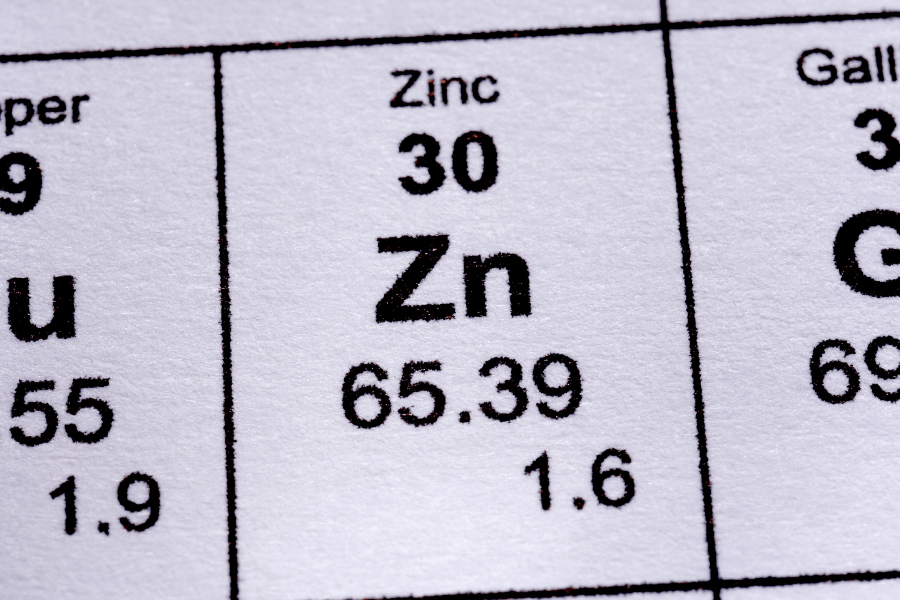Why Is Zinc So Great For Us?
The wonderful mineral Zinc is one of the essential trace elements required by the human body to function. Although the amount required of trace minerals is rather small, ranging from 50 micrograms to 18 milligrams, they are utterly vital for life. Furthermore, over 100 enzymes in the body are dependent on zinc for their functioning making the mineral one of the most important micronutrients (Gad, 2014).
You may be aware of the popular benefits connected to zinc such as a common cold defence, good skin health, and for fertility. In addition, zinc is also involved in many other beneficial functions including:
- Anti-aging by protecting against free-radical damage.
- Facilitating digestion.
- Hormonal balance.
- Growth and repair of cells.
- Anti-inflammatory properties.
- Can improve acne.
How much Zinc do you require in your diet?
Most people can obtain adequate amounts of zinc in a balanced diet. Certain medications and conditions may affect its absorption. Foods high in calcium and phosphorus also can decrease zinc absorption. Therefore due to this reason it is important avoid taking zinc with milk, cheese, tofu, sardines, yogurt, nuts, lentils, beer, and soft drinks.
The Australian Nutrient Reference Values (NHMRC, 2014) list the following recommendations for the recommended dietary intake (RDI):
- Men from 19 to over 70: 14mg/day
- Women from 19 to over 70: 8mg/day
- Pregnant women aged 14-18: 10mg/day
- Pregnant women aged 19-50: 11mg/day
Foods that are a great source of zinc:
- Oysters and shellfish
- Meat, red meats are the highest source
- Pumpkin seeds, chia Seeds, and flaxseeds
- Legumes
- Almonds
- Dairy and eggs
People who may be at risk of deficiency include:
- Pregnant and breastfeeding women
- Heavy alcoholic drinkers
- Gastrointestinal diseases like Crohn’s
- Chronic kidney disease
- Sickle cell anaemia
- Vegetarians and vegans
- Diabetics
- People who take Proton Pump Inhibitors (medication)
What are the signs and symptoms of a deficiency?
- Loss of appetite
- Diarrhoea
- Weak immune system
- Growth retardation
- Inflammatory skin lesions. These could be acne, eczema, psoriasis, dermatitis
- Hair loss
- Unexplained weight loss
- Slow wound healing
In conclusion, if you are concerned you may not be getting enough zinc in your diet or may be suffering from deficiency symptoms, then we encourage you to please contact a health practitioner. They can assist with diet, lifestyle and supplement advice.
References
Gad, S. (2014). Zinc. In Encyclopedia of Toxicology (pp. 997-999)
Thank you For Sharing!







